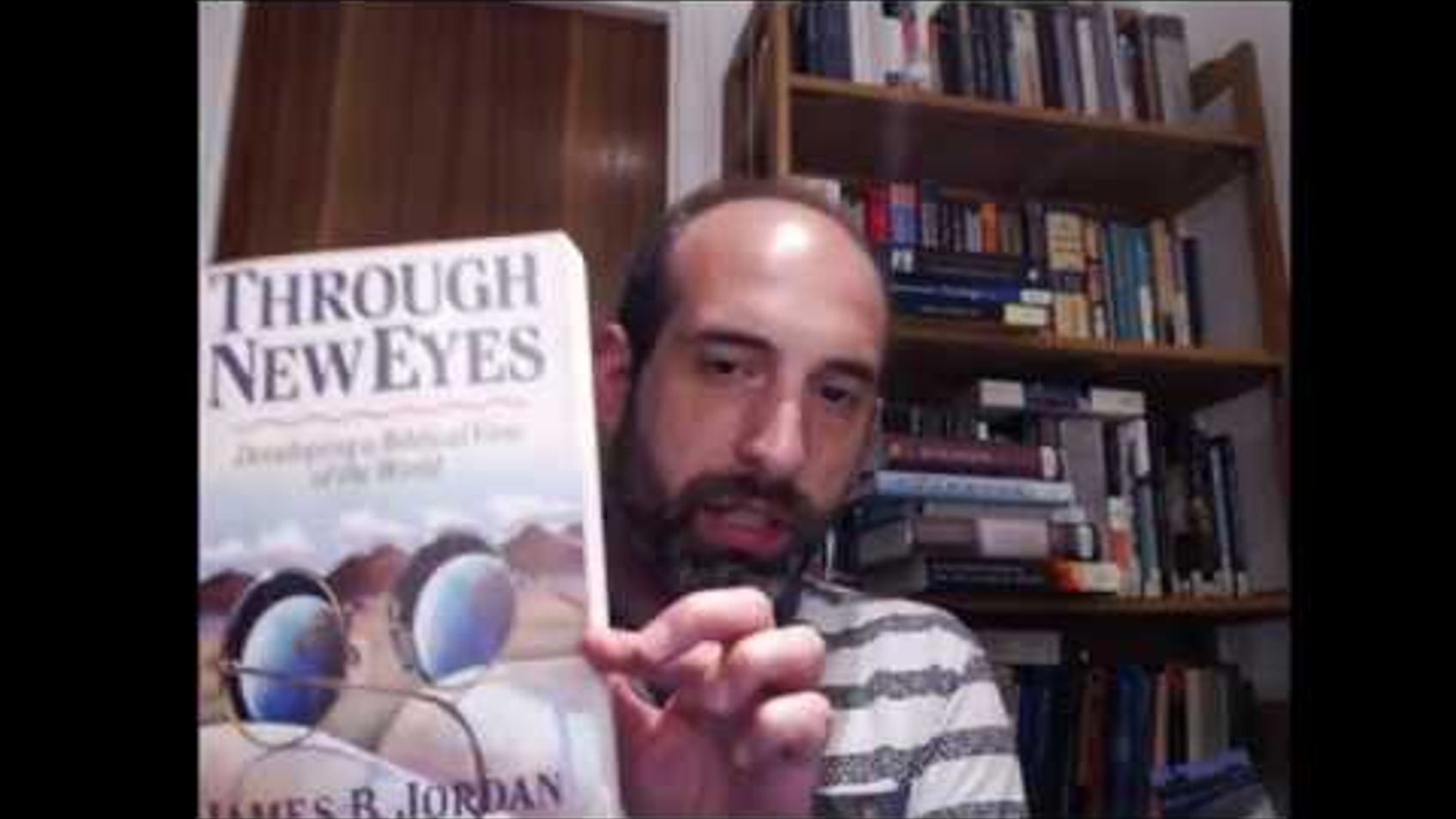A Must-Read Book!
July 18, 2018

Alastair Roberts
I recommend James Jordan's book 'Through New Eyes: Developing a Biblical View of the World' (https://amzn.to/2NoYVPs). His Reading the Bible series of lectures can be found here: http://www.wordmp3.com/product-group.aspx?id=121.
See also Peter Leithart's 'A House For My Name' (https://amzn.to/2L8l6fZ). And his 'Deep Exegesis' (https://amzn.to/2LqkjDd).
Leave any questions you might have for me on my Curious Cat account: https://curiouscat.me/zugzwanged. If you would like to support these videos, you can do so at https://www.patreon.com/zugzwanged.
More From Alastair Roberts

Q&A#12 The Meaning of Rachel's Tears in Matthew 2
Alastair Roberts
July 19, 2018
Today's Question: "What does the conception of Issachar have to do with Matthew 2:16-18?"
For Rabbi David Fohrman's reading, see https://www.alephbet
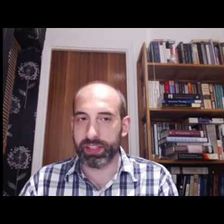
Q&A#13 How Do We Reconcile the Differing Accounts of Judas' Death?
Alastair Roberts
July 21, 2018
Today's Question: "How do you deal with the seemingly contrasted accounts of how Judas dies?"
I've discussed some of this in a recent piece here: htt
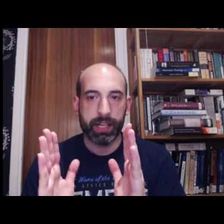
Q&A#14 How Does Genesis Anticipate Later History?
Alastair Roberts
July 22, 2018
Today's Question: "I loved your observations on how Gen 12-14 traces out the history of Israel (in advance of that history!). Fascinating stuff! Could
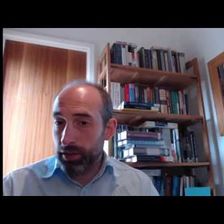
Q&A#11 What Should We Make of the Sign Gifts?
Alastair Roberts
July 16, 2018
Today's Question: What is your view of the miraculous gifts (like prophecy and the gifts of tongues) in the New Testament period? Did these discontinu
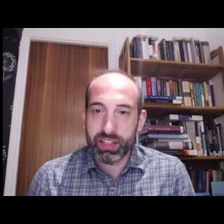
Unravelling the Mysteries of the Book of Esther
Alastair Roberts
July 15, 2018
An attentive reading of the book of Esther will raise various important questions that most of its readers miss. In this video, I discuss some of the
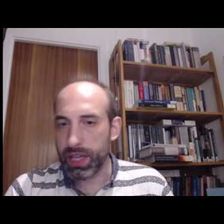
Q&A#10 The Significance of Melchizedek
Alastair Roberts
July 13, 2018
Today's Question: Why is Melchizedek so important to the author of Hebrews? What's the biblical-theological significance of Jesus being a priest after
More on OpenTheo

Kingdom Priorities: Following the Teachings of Jesus
Knight & Rose Show
February 14, 2026
Wintery Knight and Desert Rose discuss Jesus' teachings from the Gospels, emphasizing truth, evidence, self-denial, and forgiveness. They explore pass

What Is Wrong with Wokeness? With Neil Shenvi
Life and Books and Everything
January 19, 2026
In this timely interview, Kevin talks to Neil Shenvi about his new book (co-authored with Pat Sawyer), entitled “Post Woke: Asserting a Biblical Visio

How Do I Determine Which Topics at Work Are Worth Commenting On?
#STRask
January 5, 2026
Questions about how to determine which topics at work are worth commenting on, and a good way to respond when you’re in a group Bible study and hear e

Can You Provide Verifiable, Non-Religious Evidence That a Supernatural Jesus Existed?
#STRask
November 10, 2025
Question about providing verifiable, non-religious evidence that a supernatural Jesus existed.
* I am an atheist and militantly anti-god-belief. Ho

When I Can’t Stop Thinking About Something, Is That God Speaking?
#STRask
December 1, 2025
Questions about whether having a recurring thought is an indication God is speaking to you, what to say to someone who says they sinned because “God t

Can Two Logical People Come to Conflicting Conclusions Without Committing a Fallacy?
#STRask
January 8, 2026
Questions about whether two logical people can come to conflicting conclusions on a topic without committing a fallacy, how Greg, as a public figure,

Is It Possible There’s a Being That’s Greater Than God?
#STRask
February 5, 2026
Questions about whether it’s possible there’s a being that’s greater than God and that’s outside of God’s comprehension and omniscience, and how to ex

The Making of the American Mind with Matthew Spalding
Life and Books and Everything
February 2, 2026
The United States is unique in how much attention it pays to its founding, its founders, and its founding documents. Arguably, the most famous and mos

Prove to Me That Jesus Is Not a Created Being
#STRask
January 26, 2026
Questions about why we should think Jesus is not a created being, and what it means to say God became fully human if part of being human means not bei

Why Does the Bible Teach You How to Be a Proper Slave Owner?
#STRask
November 13, 2025
Question about why it seems like the Bible teaches you how to be a proper slave owner rather than than saying, “Stop it. Give them freedom.”
* It s

Lora Ries: Border Security and Immigration Policy
Knight & Rose Show
December 7, 2025
Wintery Knight and Desert Rose welcome Lora Ries to discuss border security and immigration policy. They explore Biden's policy changes, like ending R

What Are Some Good Ways to Start a Conversation About God with Family Members?
#STRask
October 30, 2025
Questions about how to start a conversation about God with non-Christian family members, how to keep from becoming emotional when discussing faith iss

Sense, Sensibility, and Adam Smith with Jan Van Vliet
Life and Books and Everything
February 16, 2026
This year is a special anniversary for the United States as Americans celebrate 250 years of independence. But 1776 was an important year in more ways

Did Jesus Prove He Wasn’t Sinless When He Overturned the Tables?
#STRask
December 29, 2025
Questions about whether Jesus proved he wasn’t sinless when he overturned the tables, whether Jesus’ response to the Pharisees in Mark 3:22–26 was a b

How Do You Justify Calling Jesus the Messiah?
#STRask
December 18, 2025
Questions about how one can justify calling Jesus the Messiah when he didn’t fulfill the Hebrew messianic prophecies, and whether the reason for the v
